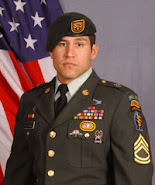Elbridge Gerry ~ Founder and Patriot
Elbridge Gerry
1744-1814
Representing Massachusetts at the Continental Congress
Elbridge Gerry was born in Marblehead, Massachusetts, on July 17, 1744. He studied at Harvard to be a merchant, graduating in 1762. He was elected to the Massachusetts Legislature in 1773 and was selected to attend the Provincial Congress in 1774. He was then appointed to the Continental Congress, where he was engaged in committee work on commercial and naval concerns. He attended the Constitutional Convention in 1798 but was opposed to the new Federal Constitution, refusing to sign it.
He was elected to the first two Congresses from Massachusetts and, in 1797, was one of several envoys sent to France. He was elected governor of Massachusetts in 1810 and 1811. In 1812 the word Gerrymandering was coined when the Massachusetts legislature redrew the boundaries of state legislative districts in order to favor Governor Gerry's party. The Governor's strategy was to encompass most of the state's Federalists, allowing them to win in that district while his party, the Democratic-Republicans, took control of all the other districts in the state. The term eventually became part of world political vocabulary, and the practice is still in use today. He was much criticized for redistricting the state to the advantage of his own party (Democratic-Republican).
In 1812 he was elected Vice President of the United States under President Madison. He died in office, on November 23, 1814, at the age of 70. He is buried in the Congressional Cemetery in Washington, DC - the only signer of the Declaration of Independence buried in Washington, DC.
He was elected to the first two Congresses from Massachusetts and, in 1797, was one of several envoys sent to France. He was elected governor of Massachusetts in 1810 and 1811. In 1812 the word Gerrymandering was coined when the Massachusetts legislature redrew the boundaries of state legislative districts in order to favor Governor Gerry's party. The Governor's strategy was to encompass most of the state's Federalists, allowing them to win in that district while his party, the Democratic-Republicans, took control of all the other districts in the state. The term eventually became part of world political vocabulary, and the practice is still in use today. He was much criticized for redistricting the state to the advantage of his own party (Democratic-Republican).
In 1812 he was elected Vice President of the United States under President Madison. He died in office, on November 23, 1814, at the age of 70. He is buried in the Congressional Cemetery in Washington, DC - the only signer of the Declaration of Independence buried in Washington, DC.















































































































No comments:
Post a Comment